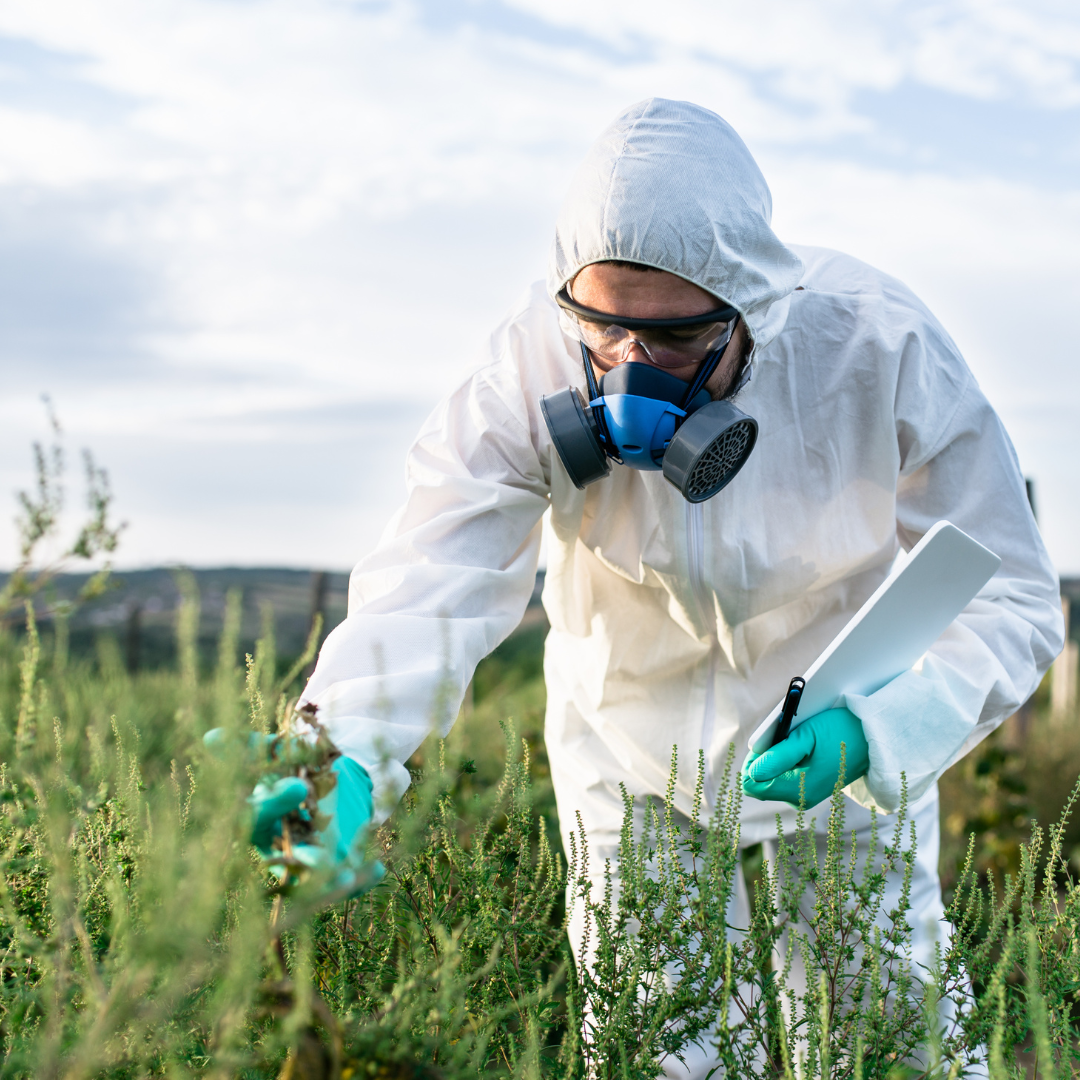Weed Control Without Chemicals
Removing weeds from your landscape is a time-consuming task that can be frustrating for many homeowners. Not only do weeds detract from the overall appearance of your property, but they can also compete with your desirable plants for valuable nutrients and water.
While chemical herbicides are a common go-to solution for many homeowners, they often come with a host of potential risks and drawbacks. They can be particularly harmful to the health of your pets (if you have one, of course!) Therefore, it is important to explore organic or homemade weed killer safe for pets, people, and the environment.
Laying the Groundwork
The first smart idea in a project for chemical-free weed control in gardens is to prepare the plot of land in question. Put these ideas in place before you plant to ensure a successful start:
- Weeds can be killed by solarizing the soil. The roots send out a tap root that anchors the plant to the earth and grows down into the soil. The tap root sends up smaller lateral roots that extend outward in all directions.
- Lay out the landscape fabrics. Starting with a thorough weed-free landscape fabric treatment, you can ensure that weeds are prevented from growing. This weed-control method involves laying down a weed barrier beneath your garden. The fabric will filter out weed seeds and allow water and nutrients to flow into the soil.
- Make use of garden mulch. The best time to weed is when they’re small and weed-free. And the best weed-control method is mulch. Mulching is an inexpensive way to suppress weeds, and the best part is that you can do it anytime, anywhere.
Organic Herbicides
Pre-emergent herbicides are applied before weeds take root, while post-emergent herbicides are used after weeds have already sprouted. Pre-emergent herbicides come in various formulations, but their purpose is to eliminate seeds before they germinate. You can purchase these herbicides at stores that offer a wide range of lawn products, including weed control herbicides and lawn winter fertilizer. Shopping at such stores makes it convenient to find all your lawn care needs in one place.
It’s spring, which means weeds are popping up everywhere. And this year, the weeds are worse than ever. They’ve been forced out by “good” plants like clover, which thrive in the disturbed soil left behind by the snow and rain of winter. But their bad reputation precedes them, and while most people usually aren’t supportive of them, there’s another group of people, the microorganisms that eat them. In many areas of the world, weeds crowd out “good” plants, and a recent study offers an explanation. Planting weeds, such as ragweed, alongside crops, accelerates their growth, overshadowing and stunting crop development. Intriguingly, scientists are engineering genetically modified crops containing weed-toxic chemicals, envisioning a future where crops combat weeds effectively. Meanwhile, there are strategies to control weed proliferation around our properties, such as Nematodes from Green Gardener or other sources. These beneficial microscopic organisms offer a potential natural solution. Nematodes target soil-dwelling pests, contributing to balanced ecosystems without relying on chemicals. Weed control without chemicals is possible, and many people manage to grow organic crops without any help from chemicals. In addition, grass weeds can also be removed quickly and efficiently with the help of sturdy farm machinery such as a Tillet Weeder and a crimper roller. Weeds may strike down roots in the soil beneath if the integrity of the landscape fabric has been compromised, making them difficult to pull out. In this case, water the affected area first. A general rule of thumb for weeding is that weeds are easier to pull out of moist soil than dry soil. Is that some pest control methods may be harmful to people and pets. However, you can avoid pesticides and use natural solutions to solve your pest control problems. These natural remedies are safe and effective. Natural solutions may be more expensive, but they are harmless for your family and the environment. There are numerous methods to use while controlling weeds. It can be mechanical, biological, chemical, and sometimes, a combination of both. Mechanical weed control includes cultivation to prevent weeds from germinating, mowing, power raking, and mulching. Weeding by hand is also a good option.If You Still Find Yourself Pulling Weeds


